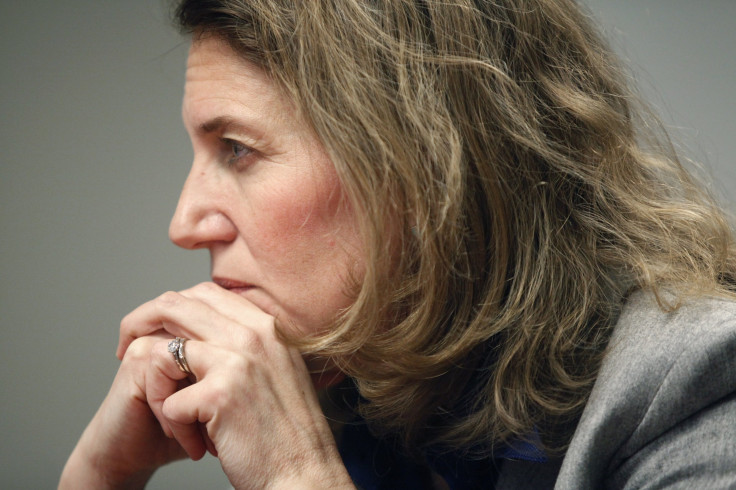Why Are So Few People Signing Up For Obamacare? Open Enrollment Expecting Low Numbers

One of the Affordable Care Act’s biggest boasts this year is that it has reduced the number of uninsured Americans by up to 10 million people. While that number makes the case that the program is achieving one of its top stated goals, 41 million Americans remain without insurance. As the Obama administration nears the second round of open enrollment for the much-touted exchange market, strikingly few people are expected to sign up for insurance starting Saturday.
Despite promising numbers from the first and second quarter of 2014, the administration has projected only 9.1 million Americans will have signed up for the ACA’s exchanges by the end of 2015. That’s a paltry change from the 7.1 million already taking part and well below the 13 million projected by the Congressional Budget Office. Many have called the figure a “lowball” from the White House, while others have pounced on the number as proof that President Barack Obama’s health care law is simply not working. “Despite the administration’s habit of moving the goalposts, the fact is Obamacare is simply not delivering the results Americans were originally promised,” said Rep. Darrell Issa, R-Calif.
This year’s open-enrollment period begins at a later and less optimum time than last year’s did – it falls in the middle of the Thanksgiving and Christmas holidays – and runs for only three months, compared with six in 2013. But given the number of people who say they want health insurance and the subsidies, penalty exemptions and discounted policies now available, why aren’t more people signing up for Obamacare?
The disconnect may be because many uninsured Americans simply don't feel compelled to take action. Joseph Antos, a health policy expert at the American Enterprise Institute, said that when the ACA’s website debuted, many people fought through pervasive malfunctions and various system inefficiencies because they were excited to get insurance. But now, most of those people are insured and those who are left are harder to convince.
“When it was shiny and new, people paid attention,” Antos told International Business Times. “At this point there has been so much publicity about this and I’m sure that people’s minds start to shut off, [thinking] ‘Why are you telling me this again?’ It’s not that they’ve signed up, but they’re tired of hearing about it. You know, when your mother tells you the 50th time to clean your room, you stop listening.”
Those who still have not applied for Obamacare also haven’t seen the ramifications of not signing up for insurance, Antos said. “The other part of this that isn’t going to work out is the mandate that if you’re not signed up you’re penalized … but most people don’t know anyone that’s been penalized, because no one’s been penalized yet,” he said. “This is the kind of thing that takes so long to put in that it’s not going to make it to the conversations in the neighborhood. If the penalty is actually imposed on people then the idea that there’s a negative if you don’t sign up … is real. But right now it’s just a theory.”
The Obama administration waived the penalty for the first year because of problems with the HealthCare.Gov website, and Antos said he expects the administration to waive it again. The penalty would be $95 or 1 percent of an individual’s income above the tax filing threshold, whichever is higher, for 2014. It increases to $325 per person or 2 percent of income above tax filing threshold next year.
Additionally, there’s the possible backlash to increased premiums, which are generally expected, and the bad memories of trying to sign up through the HealthCare.Gov website that could cause people who were insured to change their minds. New enrollment estimates from the Department of Health and Human Services assume that about 6 million people, or 83 percent of the people who got 2014 coverage, will renew their plan for 2015.
But the biggest problem may simply be that most people don’t know what’s happening. A recent poll from the Henry J. Kaiser Family Foundation discovered that nine out of 10 uninsured Americans are unaware that open enrollment starts on Saturday.
“I think that is an unfortunate continuation of a trend that’s been going on for quite a while now. Our data shows that people really aren’t familiar with what’s in the ACA,” Karen Pollitz, senior fellow at the Kaiser Family Foundation, told IBTimes.
Additionally, two-thirds of uninsured Americans said that they knew either nothing or just a little about the marketplaces, and 53 percent do not know that the health reform law provides financial assistance to low- and moderate-income Americans. “This is still new,” said Pollitz. “Even if they heard about open enrollment last year, they may not realize that it comes around every year.”
© Copyright IBTimes 2024. All rights reserved.












